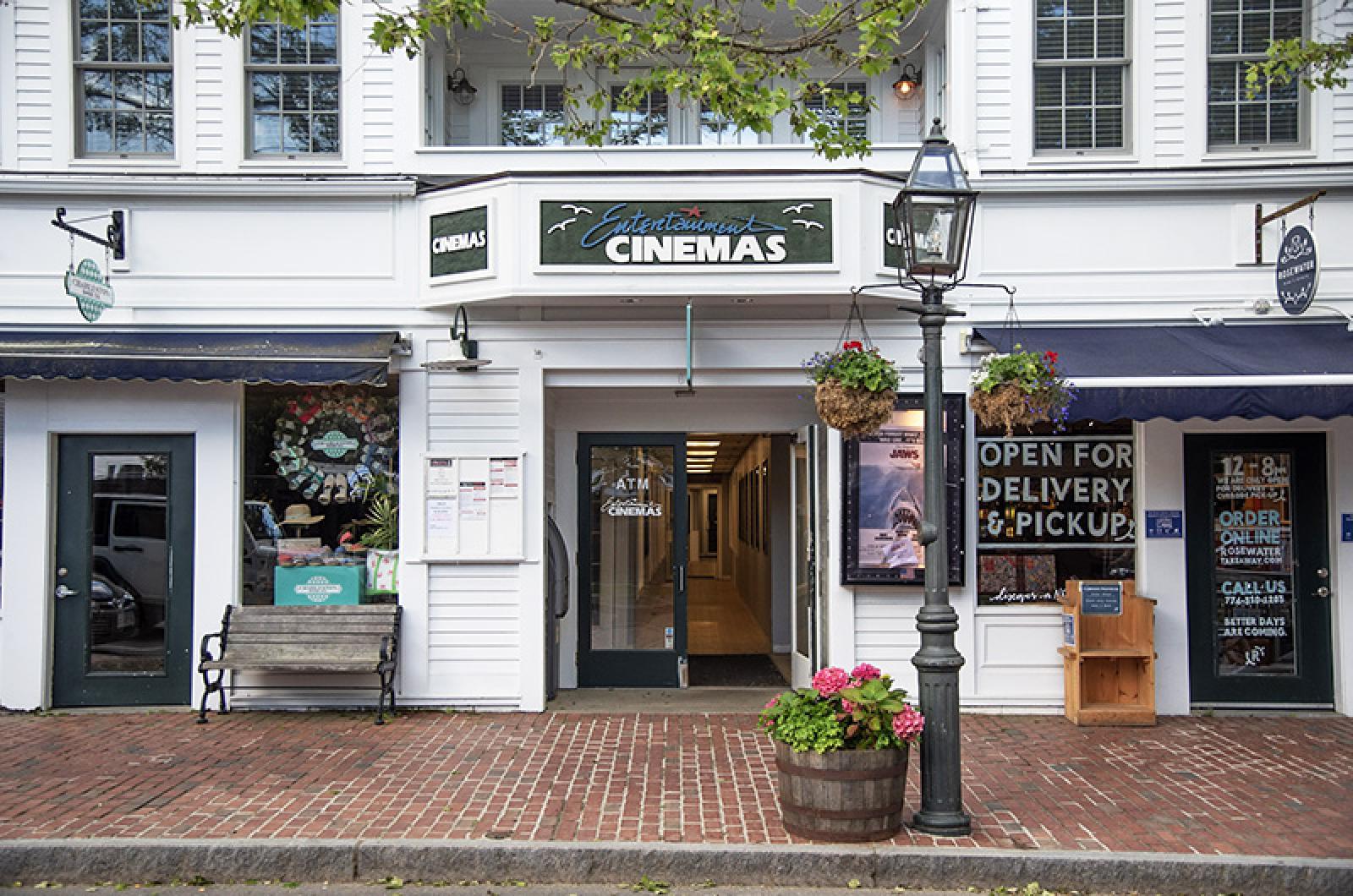Edgartown restaurants can now officially apply to expand their outdoor dining capacity, as selectmen approved a policy Monday that would allow eateries hampered by the pandemic to create seating areas on downtown sidewalks, property and potentially public ways.
Under the new policy, restaurants can request the areas they want closed, and the town will serve as the permitting agent for the applications.
“I think we can send this out, get the responses back, look at it collectively, and based on the intent we’ve heard from Edgartown board of trade with regard to not blocking any streets and with regard to minimizing any traffic impact, I think we can meet that intent,” town administrator James Hagerty told the selectmen Monday.
Mr. Hagerty has been the prime mover behind the emerging plan to open up more areas downtown this summer for outdoor dining under the new rules that go with the state’s phased reopening plan. Mr. Hagerty proposed the so-called European model about a month ago as a creative solution to food supply issues in the town as the pandemic continues.
The plan has received considerable public vetting in recent weeks. Mr. Hagerty said at a meeting last Wednesday that after consulting with stakeholders, consensus had emerged favoring a hybrid plan with some street closures and contiguous parklets for individual restaurants to offer outdoor dining.
Gov. Charlie Baker’s second phase for reopening began Monday, allowing outdoor seating at restaurants. Other townships throughout the state, including Boston, have begun to adopt expanded outdoor dining policies.
The application process approved in Edgartown is available on the town website and effectively functions as a temporary expansion of the town’s local extension of its licensed premises policy. The measure will be in place throughout the Covid-19 emergency, and delineates the design and appearance rules for the extensions, application criteria and insurance rules.
The application asks restaurants to attach a photo sketching out any changes they want to make to their premises or nearby public ways. The requested area must be contiguous to the restaurants’ previously licensed premises — with either a clear view of the area from inside the premises, or a commitment to provide managerial personnel on the requested area. Separate alcohol licenses are required for the new area, and will not be granted without a food license.
All the extended premises must be enclosed with ropes or fencing to prevent access from a public walkway — and any blocking of a public way that affects traffic must also include requests for Jersey barriers. All extended premises must shut down by 11 p.m.
Restaurants will be required to carry liability insurance for the extended premises that adds the town as an additional beneficiary, up to $1 million.
When making decisions about what areas to close, the town “will consider the type of neighborhood and the potential for noise in the environs,” the policy states.
At the selectmen’s meeting on Monday, Patrick Courtney, owner of the Port Hunter and Covington restaurants on Main street, asked what the town planned for restaurants that did not have ample space to expand near their property without affecting traffic flow.
“One of my major concerns is if I don’t have the physical space to expand outside, what’s going to happen when other restaurants that do have that space to expand end up with a lot of seats outside, and then I’m left with very few?” Mr. Courtney asked.
Mr. Hagerty said the plan the town had in place would try to accommodate every downtown restaurant, based on square footage and location. But he added that the main goal of the plan was to increase food supply options for the town, which has one full-service grocery store that has already experienced stocking issues.
“Ultimately, this has been framed not necessarily as economic development policy, but more of a food sustainment and food chain supply policy,” Mr. Hagerty said. “There is going to be some creative thinking that might need to happen with regard to your location and the town location that is adjacent. There’s not going to be one plan that is going to satisfy anybody.”
He added: “I think the only winner we are picking is the town of Edgartown.”







Comments (4)
Comments
Comment policy »